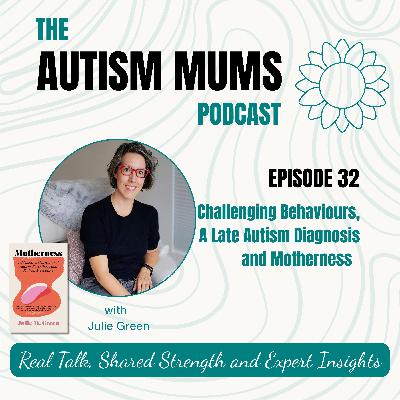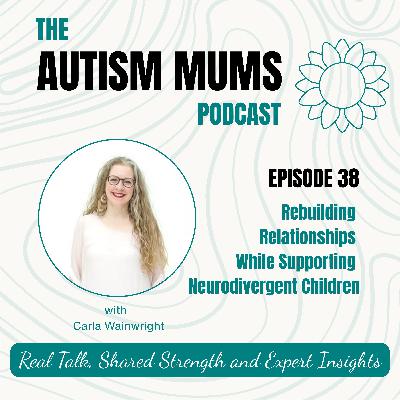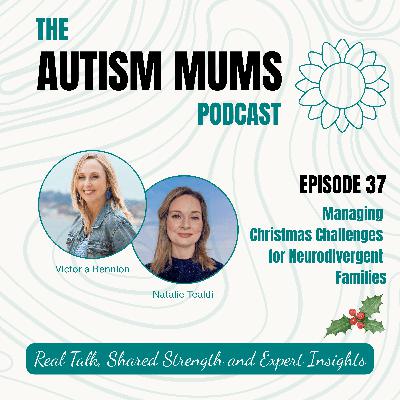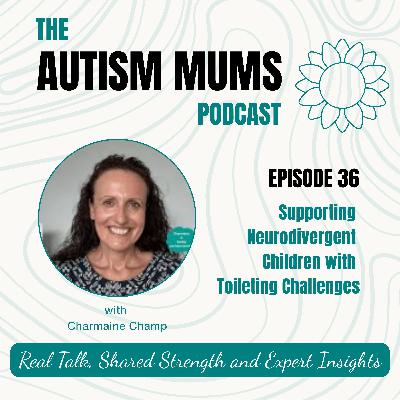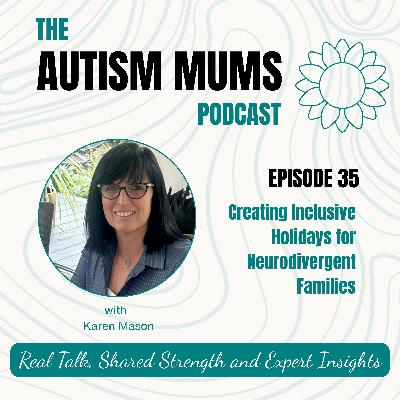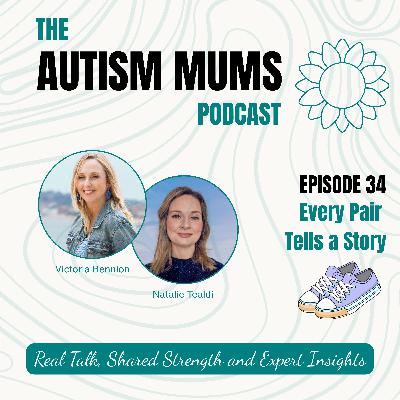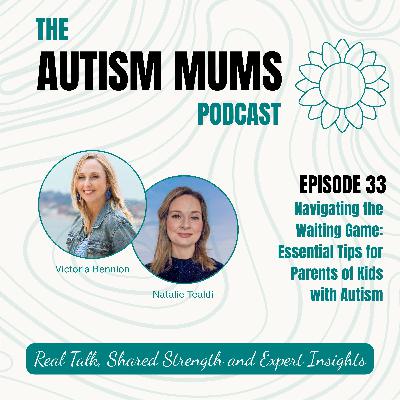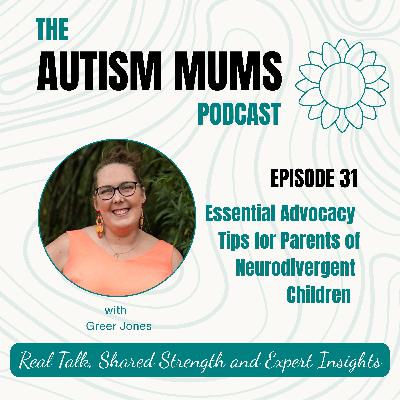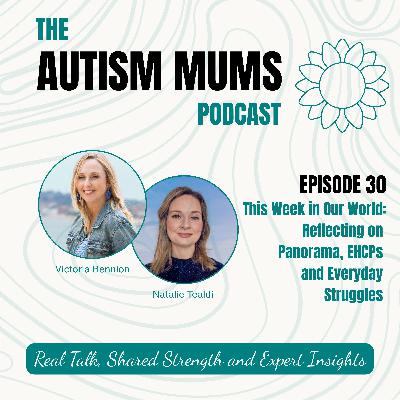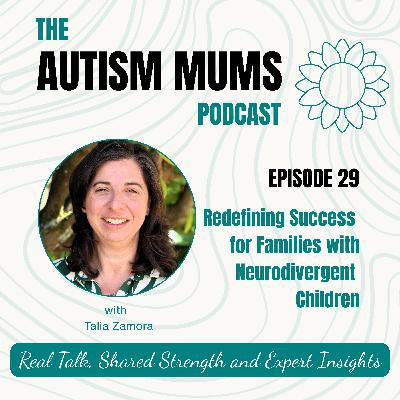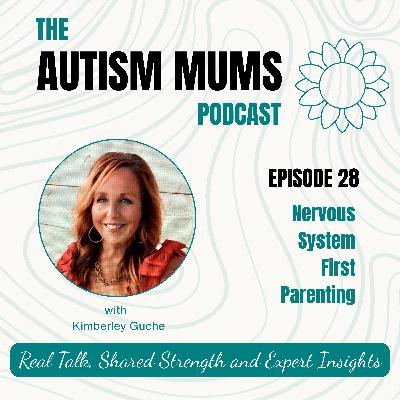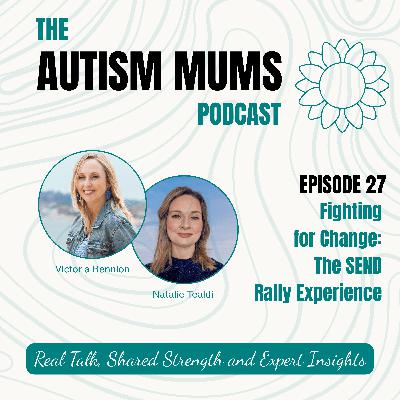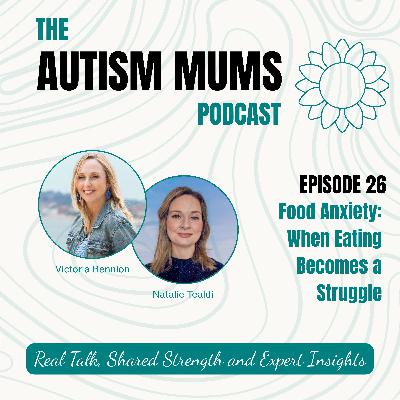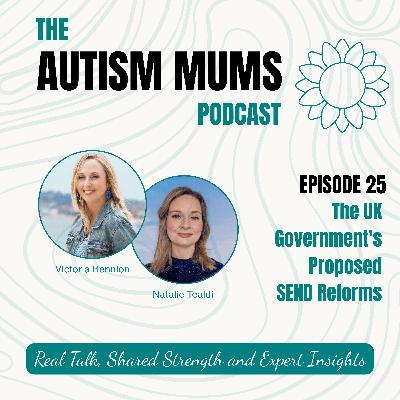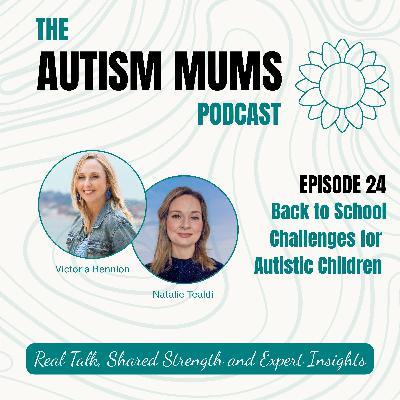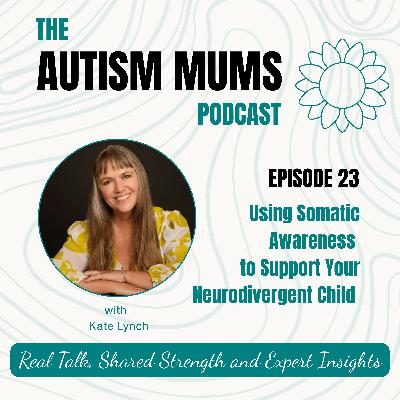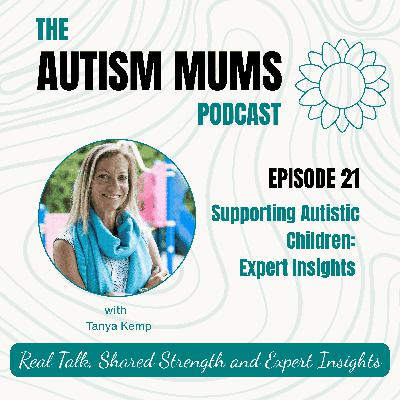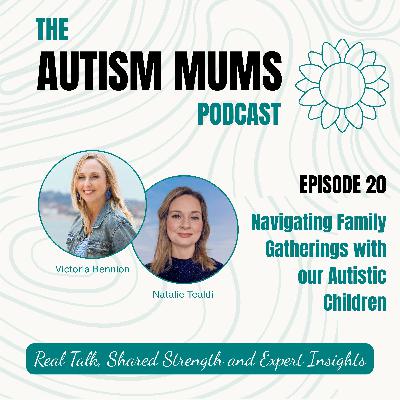Challenging Behaviours, A Late Autism Diagnosis and Motherness with Julie Green
Description
In this episode Victoria and Natalie chat with Julie Green, author of Motherness, to explore the realities of parenting through autism both as a mum to an autistic son and as a woman who discovered her own autism later in life.
Biography
Julie M. Green is a Canadian writer whose work has been featured in the Washington Post, HuffPost, The Globe and Mail, Today’s Parent, and Chatelaine. She has appeared on CTV, BBC Radio, SiriusXM, and CBC Radio. She writes The Autistic Mom on Substack. For more information, visit JulieMGreen.ca.
Key Takeaways
- Autism in girls and women can look very different from the traditional stereotypes. Julie explains that while boys can be identified through visible traits like lining up toys or having clear special interests, girls may channel their autistic traits into more socially acceptable interests
- Many girls mask their differences by copying peers
- The importance of seeing challenging behaviour as communication, not defiance.
- How self-compassion and reframing past experiences can heal years of misunderstanding and self-blame
- The need for schools and systems to replace punishment with understanding and co-regulation.
Mentioned in This Episode
Motherness: A Memoir of Generational Autism, Parenthood, and Radical Acceptance
Connect with Julie Green
Website: juliemgreen.ca
Instagram: https://www.instagram.com/juliem.green
Substack: https://theautisticmom.substack.com/
LinkedIn: https://www.linkedin.com/in/julie-m-green-34bb1845/
Connect with The Autism Mums
Website – https://theautismmums.com/
Follow us on Instagram https://www.instagram.com/theautismmums
Follow us on Facebook https://www.facebook.com/theautismmums
Follow us on TikTok https://www.tiktok.com/@theautismmums
Transcript
Victoria Bennion:
[00:00:00 ] Today we are joined by author Julie Green, whose new book, mother Ness Explores
Life as both an autistic mom and the parent of an autistic son. We talk about
late diagnosis, what autism can look like in women and girls and navigating
challenging behavior.
Victoria Bennion and Natalie
Tealdi: Welcome to the podcast, Julie. It's great to have you here.
Julie Green: Thanks for having me.
Victoria Bennion and Natalie
Tealdi: So you are a mom to an autistic son, and you also discovered
later in life that you are also autistic. Can you start by telling us what led
you to consider that you might be autistic?
Julie Green: Oh my.
When I say it was a process, it took. Almost exactly 10 years, a very long
time. So needless to say, ooh, going back when my son was diagnosed at three I
didn't know much about autism generally, let alone. Autism in girls and women
and how that could look different. So it was very much a process.
Julie Green: The
information just wasn't even out there. It wasn't necessarily [00:01:00 ] that it wasn't on my radar. I don't even
really think you had Temple Grandin at that point. It was just, it was such a
learning curve just to learn about it with my son. And then. Every now and
then, I was just struck by these similarities, thinking, oh I was really
sensitive with clothing and oh, I was really certain noises and, the need for
routine.
Julie Green: So there
were some similarities with my son, but in a lot of respects, he was very much
the typical. Image that we have of a little boy, lining up the Thomas trains.
And that just did not really fit because I was fairly social. All these sort of
things. And then I think ultimately, I became involved in it was like the
blogging sphere back then, and I came across, I was writing about parenting and
I started to write about autism and our experiences, but I eventually did come
across an autistic woman through the community and got chatting with her and [00:02:00 ] realized in getting to know her that, oh,
okay, so this is this looks very different and.
Julie Green: She and
I were very similar, and that gradually led me to think, okay maybe I am also
autistic. And then again, took a little while longer for me to actually decide
to pursue being assessed. So at the time, even here in Canada, the wait list
wasn't that bad. I waited maybe a year through my GP and it was through our
oip, which I'm in Ontario, so our province has the equivalent of the NHS.
Julie Green: I
didn't, initially, I was thinking, oh, do I wanna go through with this and, pay
thousands of dollars and for what? Even if I am diagnosed, just, it was a lot
of, it was a long process, as I say, 10 years till it really fully clicked. It
clicked and then, officially got the diagnosis.
Julie Green: So I.
Victoria Bennion and Natalie
Tealdi: Did it help you when you looked back at past events? Did it
make more [00:03:00 ] sense of your life?
Julie Green: Oh, enormously. 'cause I think a lot of people are like, why do this? I was 44, so
why do this? It's not as though you're going to really qualify for any. Any funding or any supports, but I just think on a personal level, it reframes so much of you. You go through this process and it can take months if not years.
Julie Green: I, there
are still moments where you're, there are these realizations that, oh, this
thing happened in the past and oh, that wasn't. Because I was difficult or too
sensitive or too demanding or, whatever other names people call you and you
internalize a lot of this. Baggage and a lot of these other labels, I mean our
kids do too.
Julie Green: This is
why I think it's important for kids to, to understand that they're wired
differently as opposed to, my son was coming home and going, oh, I'm bad, and
they, the kids will pick up on that, [00:04:00 ]
those differences and people will label you with other things. And so I grew up
internalizing a lot of these other labels, so having that new information.
Julie Green: Just
helped me have more compassion and understanding. And just like this process of
getting to know yourself in a different way, even in my forties. Doing a lot of
repair work, I think. And yeah just reframing a lot of the narratives that I
had grown up thinking these things were personality flaws.
Julie Green: And also
just thinking, why the heck am I like that? Why do I need so much recovery
time? Why can't I do the things other people can do so easily? Why do I have
all this social confusion? So it just allows this framework to, to help you
understand yourself and, I don't think you can Yeah.
Julie Green: Put to
find a point on that. It's, it makes a radical difference at any age, but I. I
think it's worthwhile. I've had people come to me now and say I think a woman
in her seventies [00:05:00 ] or in her sixties
saying, yeah, this is finally occurring to me. And I don't think it's, I don't
think there's a time limit on that if it helps you reappraise yourself and feel
better about yourself.
Victoria Bennion and Natalie
Tealdi: So would say your life has changed since your diagnosis?
Julie Green: Yeah.
Oh, absolutely.
Victoria Bennio

